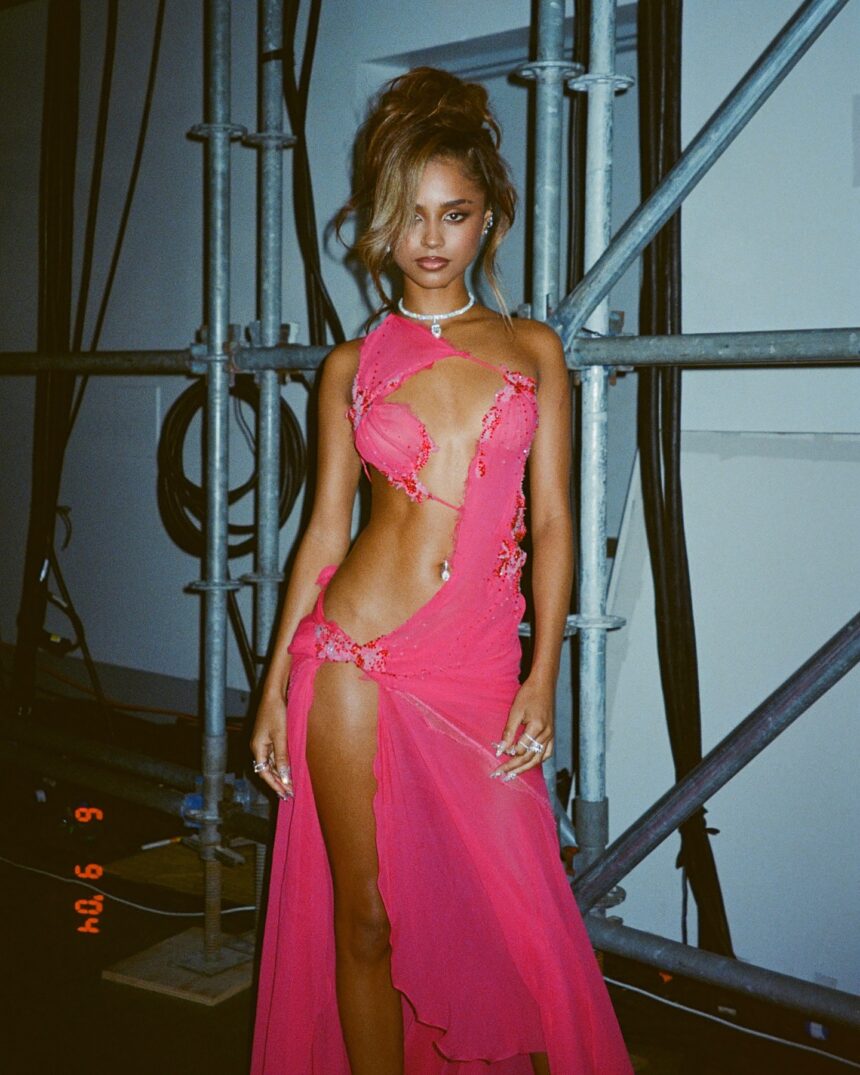It’s not easy to steal the spotlight at the Met Gala, but South African singer Tyla did just that in May when she ascended the iconic steps in a one-of-a-kind Balmain couture gown made of sculpted sand. For those who witnessed it, Tyla’s entrance was unforgettable.
“It just looked like a statue. I was like, ‘How am I going to get this on?’” the 22-year-old recalled from her New York bedroom, speaking from under a fluffy duvet. “I didn’t think I was going to have to be carried by men up the stairs. Everything was so spontaneous but perfect, even us cutting the dress at the end. It was a piece of modern sculpture.”
Though the dress didn’t survive the night, the moment added to Tyla’s growing mystique. Just months earlier, in February, she won the first-ever Grammy for African music performance with her sultry, genre-defining single “Water.” The track, part of the African music wave sweeping the globe, set the stage for her self-titled debut album, released in March, which many believe could secure another Grammy win.
“We’ve come a very, very long way,” Tyla said talking to The Envelope, reflecting on the journey of South African musicians. “But we’re also not quite there yet. No matter how amazing our music has been, our culture has never really had that type of platform before. The Grammys doing that was a huge moment for everyone. But I feel like it’s just the beginning of something amazing for the continent.”
South African music has long held a significant place on the global stage, with deep roots in the civil rights and anti-apartheid movements. Iconic figures like Miriam Makeba, the first African Grammy winner in 1966, and Hugh Masekela, who topped the Billboard Hot 100 in 1968, helped pave the way. Today, South Africa’s amapiano—a melodic, svelte blend of deep house, jazz, and local styles like kwaito and gqom—has joined the broader Afrobeats movement in reshaping global music.
“When ‘Water’ had its success all of a sudden, we knew the song was amazing but it was a shock to all of us,” Tyla admitted. “It was pressure, but only because I felt like I was finally now given the platform to make it not only beneficial to myself, but to the people after me.”
Tyla’s mastery of local sounds, coupled with the vocal influences of R&B legends like Beyoncé and Aaliyah, has made her a genre-defying force. But her rapid rise has come with challenges.
“It’s been scary, because not only did my life completely change, I’m in a different country and so many things are different culturally that I’m still trying to navigate,” she confessed. “I’m learning in front of the world. When I make mistakes, it’s going to be a thing that everyone sees, and some people won’t ever forgive. I didn’t expect it to be this hard.”
Despite the challenges, Tyla sees this moment as crucial for African music’s future. With artists like Burna Boy, Wizkid, and Tems gaining international recognition, the dedicated Grammy category for African music has opened doors to broader acclaim.
“I really want people to listen to the artists that purely make African music,” Tyla said passionately. “Purely amapiano, purely Afrobeats, original sounds of Africa. I really want people to just go deeper, and I want to share this with other artists. Our music and our culture and what we stand for, everything that we’ve been making in Africa, I see it as so much bigger than it is right now.”







